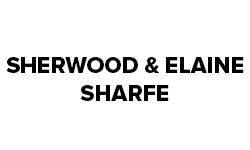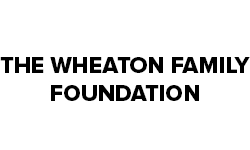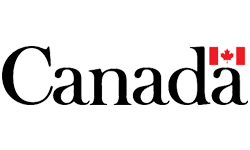Part C: Engaged Citizens Resources
INQUIRY RESOURCES
Understanding the Charter of Rights and Freedoms
The Charter is founded on the rule of law and entrenches in the Constitution of Canada the rights and freedoms Canadians believe are necessary in a free and democratic society. It recognizes primary fundamental freedoms (e.g. freedom of expression and of association), democratic rights (e.g. the right to vote), mobility rights (e.g. the right to live anywhere in Canada), legal rights (e.g. the right to life, liberty and security of the person) and equality rights, and recognizes the multicultural heritage of Canadians. It also protects official language and minority language education rights. In addition, the provisions of section 25 guarantee the rights of the Aboriginal peoples of Canada.
“In 1971, Canada was the first country in the world to adopt multiculturalism as an official policy. By so doing, Canada affirmed the value and dignity of all Canadian citizens regardless of their racial or ethnic origins, their language, or their religious affiliation. The 1971 Multiculturalism Policy of Canada also confirmed the rights of Aboriginal peoples and the status of Canada’s two official languages.
Canadian multiculturalism is fundamental to our belief that all citizens are equal. Multiculturalism ensures that all citizens can keep their identities, can take pride in their ancestry and have a sense of belonging. Acceptance gives Canadians a feeling of security and self-confidence, making them more open to, and accepting of, diverse cultures. The Canadian experience has shown that multiculturalism encourages racial and ethnic harmony and cross-cultural understanding.
Mutual respect helps develop common attitudes. New Canadians, no less than other Canadians, respect the political and legal process, and want to address issues by legal and constitutional means.
Through multiculturalism, Canada recognizes the potential of all Canadians, encouraging them to integrate into their society and take an active part in its social, cultural, economic and political affairs.
All Canadians are guaranteed equality before the law and equality of opportunity regardless of their origins. Canada’s laws and policies recognize Canada’s diversity by race, cultural heritage, ethnicity, religion, ancestry and place of origin and guarantee to all men and women complete freedom of conscience, of thought, belief, opinion expression, association and peaceful assembly. All of these rights, our freedom and our dignity, are guaranteed through our Canadian citizenship, our Canadian Constitution, and our Charter of Rights and Freedoms.
Multiculturalism has led to higher rates of naturalization than ever before. With no pressure to assimilate and give up their culture, immigrants freely choose their new citizenship because they want to be Canadians. As Canadians, they share the basic values of democracy with all other Canadians who came before them. At the same time, Canadians are free to choose for themselves, without penalty, whether they want to identify with their specific group or not. Their individual rights are fully protected and they need not fear group pressures.
Our diversity is a national asset. Recent advances in technology have made international communications more important than ever. Canadians who speak many languages and understand many cultures make it easier for Canada to participate globally in areas of education, trade and diplomacy.
Our citizenship gives us equal rights and equal responsibilities. By taking an active part in our civic affairs, we affirm these rights and strengthen Canada’s democracy, ensuring that a multicultural, integrated and inclusive citizenship will be every Canadian’s inheritance.”
This text was retrieved from https://web.archive.org/web/20130905134202/http://www.cic.gc.ca/english/multiculturalism/citizenship.asp using the Internet archive WayBack Machine. This text appeared on the Government of Canada webpage https://web.archive.org/web/20170616021129/http://www.cic.gc.ca/english/multiculturalism/citizenship.asp Dec. 20, 2014. The reproduction of this text has not been produced in affiliation with, or with the endorsement of, the Government of Canada.
LESSON RESOURCES
All websites were accessed November 2017
- Modules on Cultural Safety – http://web2.uvcs.uvic.ca/courses/csafety/mod2/index.htm
- Flower of Power – http://web2.uvcs.uvic.ca/courses/csafety/mod2/media/flower.htm
The Flower of Power is intended to get students thinking about dominant groups in society and our individual places of privilege. It supports the diversity wheel. - Robin DiAngelo, Critical Racial and Social Justice Education: https://robindiangelo.com
- White Privilege – Unpacking the Knapsack – http://www.antiracistalliance.com/Unpacking.html#top
- White Privilege and Male Privilege: A Personal Account of Coming To See Correspondences through Work in Women’s Studies” (1988), by Peggy McIntosh; Wellesley College Center for Research on Women, Wellesley MA 02181
Retrieved from: https://web.archive.org/web/20150930025427/http://www.amptoons.com/blog/files/mcintosh.html - Understanding White Privilege: https://www.cpt.org/files/Undoing%20Racism%20-%20Understanding%20White%20Privilege%20-%20Kendall.pdf
- Trends in Immigration http://www.clbc.ca/files/reports/ihb_section_a.pdf
- Universal Declaration of Human Rights – http://www.un.org/en/documents/udhr/
- Child friendly version – http://www.eycb.coe.int/compasito/chapter_6/pdf/1.pdf
- United Nations Declaration on the Rights of Indigenous Peoples – http://www.un.org/esa/socdev/unpfii/documents/DRIPS_en.pdf
- Universal Declaration on the Human Rights of the Child – https://web.archive.org/web/20171014144143/http://www.centersofcompassion.org/universal-declaration-of-rights-for-children.php
- Geneva Declaration on the Rights of the Child – https://www.humanium.org/en/fundamental-rights/
- Unicef Declaration on the Rights of the Child: http://www.unicef.org/lac/spbarbados/Legal/global/General/declaration_child1959.pdf
- NGO’s – Non Governmental Organizations – https://www.globalpolicy.org/ngos.html
- Oxfam: https://www.oxfam.ca/blogs/general/oxfam-no-3-top-100-best-ngos
- Office of the Treaty Commissioner – www.otc.ca
- First Nations Child and Family Caring Society of Canada –
https://fncaringsociety.com/who-we-are - International Organization for Sustainable Development: http://www.iisd.org
- Directory of Indigenous Peoples Organizations – http://earthdirectory.net/indigenous
- World Conference on Indigenous Peoples – http://www.un.org/en/ga/69/meetings/indigenous/#&panel1-1
- First Peoples World Wide: http://www.firstpeoples.org
- Amnesty International – Indigenous Peoples,
- Center for World Indigenous Studies: www.cwis.org
- Directory of Faith-based Organizations; http://web.worldbank.org/WBSITE/EXTERNAL/EXTABOUTUS/PARTNERS/EXTDEVDIALOGUE/0,,contentMDK:22363829~pagePK:64192523~piPK:64192458~theSitePK:537298,00.html
- The World Bank – www.worldbank.org
- Human Rights Organizations – http://www.humanrights.com/voices-for-human-rights/human-rights-organizations/non-governmental.html
- Youth for Human Rights – www.youthforhumanrights.org
- Facing History and Ourselves. This website has background reading for teachers in a variety of areas. : https://www.facinghistory.org
- Fighting Antisemitism Together (FAST): https://www.fightingantisemitism.ca/
- Shannen’s Dream – https://fncaringsociety.com/shannens-dream
CROSS CURRICULAR CONNECTIONS
Themes
- Personal and Philosophical: Students will reflect upon:
- self-image and self-esteem; and,
- self and life, and on their beliefs and values and those of their society.
- Social, Cultural, and Historical: Students will
- look outward and examine their relationships with others, their community, and that of the world; and,
- consider the historical context.
- Environmental and Technological: Students will:
- explore the elements of the natural and constructed world and the role of technology and related developments in their society.
- Communicative: Students will:
- consider the role of communication in their lives and the ideas and technologies that help people become effective communicators.
Treaty Education
- TR6: Analyze the concepts, structures and processes which have been developed for the purpose of treaty implementation.
- HC6: Analyze how the movement towards the fulfillment of treaty obligations has positively affected all people in Saskatchewan.
- TPP6: Investigate the role of the Treaty Table and the role of the Office of the Treaty Commissioner (OTC) in promoting good relations between signatories.
Health
Understanding, Skills, and Confidences (USC)
- USC6.1 Analyze the factors that influence the development of personal standards and identity, and determine the impact on healthy decision making (including cultural norms, societal norms, family values, peer pressures, mass media, traditional knowledge, white privilege, legacy of colonization, and heterosexual privilege).
- USC6.2 Appraise the importance of establishing/maintaining healthy relationships with people from diverse backgrounds who may or may not express differing values, beliefs, standards, and/or perspectives (i.e., people of various ages, cultures, socio-economic status, faiths, family structures, sexual orientations, and cognitive/physical abilities)
- USC6.6 Develop and demonstrate the knowledge, skills, and personal standards necessary for establishing and supporting safe practices and environments related to various community activities.
Science
Life Science: Diversity of Living Things (DL)
- DL6.2 Examine how humans organize understanding of the diversity of living things. [CP, SI]
- DL6.4 Examine and describe structures and behaviours that help:
- individual living organisms survive in their environments in the short term
- species of living organisms adapt to their environments in the long term.[CP, DM, SI]
GLOSSARY
“Text from Vocabulary.com, Copyright ©1998-2016 Thinkmap, Inc. All rights reserved.”
Authority
If you have the authority to do something, you have the right or power to do it. You are the big cheese. Or, if you know more about a topic than most, you are an authority on that topic.
Giving someone authority grants them the power to make important decisions or have accepted opinions. When you leave your kids with a babysitter, you give her the authority to put them to bed at 7 p.m., no matter how much they insist you let them stay up until midnight. You’ll feel more confident leaving the babysitter in charge of bedtime decisions if she’s written two books on the subject and is an authority, or renowned expert, on children’s sleep habits. Being an authority on children’s sleep habits helps your babysitter enforce that 7 p.m. bedtime, but it may not convince the kids.
Coerce
You can bring a horse to water, but you can’t make him drink. You can coerce — or pressure — someone to attend your office holiday party, but you can’t make them have fun.
If you’re at a point where you feel like you need to coerce someone into doing something, it might be more civilized to just give up. To coerce is to manipulate, use aggressive arguments, pressure unfairly, or threaten — really, this isn’t very civilized behavior, is it? Handy synonyms for this verb include force and pressure. In a gangster film, you might hear a character say he “put the squeeze” on someone — another way of saying he coerced them.
Coercion
Coercion is making something happen by force, like when bullies use coercion to make kids give them their lunch money.
Coercion can be a threat, “The shady lawyer uses coercion when he threatens to get the waiter fired if he doesn’t rat out his boss,” or it can be actual brute force, as when the gangster breaks the messenger’s leg to keep her from talking to the police. The police might use coercion, too, to get a confession. The prefix co- is derived from the Latin word for “together.” So you can’t use coercion on yourself; you need someone else to force into doing something.
Colonialism
Colonialism has to do with one country exploiting another country by making it into a colony. Which is usually good for the mother country and bad for the colony.
Colonialism is a system in which one country creates an empire by taking over other lands and making them into colonies. Colonies don’t have power over themselves, and the mother country takes resources and money from the colony. It’s not a very fair system, but it’s also how the United States got its start: England was really into colonialism and had built a huge empire, until some feisty American patriots decided to rebel.
Diversity
When there’s diversity, there’s variety. Often, this word is used for diversity of race, class, or gender.
To have diversity, you need a mix of whatever you’re talking about. If you like science fiction, romantic comedies, cartoons, and action movies, then you like a diversity of types of films. If you like nothing but kung fu films, then you don’t like a diversity of films. No matter what kind of diversity you’re talking about, there needs to be a real mix, kind of like a huge box of Crayolas.
Force
If you’ve ever walked outside in a blizzard, you’ve felt the force, or strength, of the wind and snow pushing against your body.
Force often describes a physical energy that can be seen or felt, but it has other meanings. A powerful person can exert a force just by using particular words or body language. Written words can also have a force, or strong influence. When it’s a verb, force means to make something happen using physical strength or some other powerful effort, which is what you do when you force the wrong key into a key hole.
Influence
Influence is the power to have an important effect on someone or something. If someone influences someone else, they are changing a person or thing in an indirect but important way.
Sometimes a person who influences another doesn’t intend to have any effect, but sometimes they are using influence to benefit themselves. An example of a personal benefit or advantage would be the use of political influence. Influence is also a verb, from Latin influence to flow in.
Oppression
Oppression is when a person or group in a position of power controls the less powerful in cruel and unfair ways. Not cool.
“Power concedes nothing without a demand. It never did and it never will.” Those words came from Frederick Douglass, a former slave who devoted his life to ending the oppression of black people at the hands of powerful white slave owners. The Latin root means “pressed against,” and oppression feels like hands pressing your head, keeping you down. Oppression can be widespread throughout a culture, or felt by a single individual, like enduring the sun’s oppression on a hot summer day.
Pluralism
If you believe in pluralism, you believe that people of all races, classes, religions, and backgrounds should be able to get along on equal footing in society.
Can you hear the word plural, meaning “more than one,” in pluralism? Someone who believes in pluralism believes that there are many different ways to live, and thinks that government and society should be structured in such a way as to encourage and appreciate people’s differences. The extreme opposite of pluralism is totalitarianism, when one supreme dictator makes all the decisions and no one can contradict him. In the Catholic Church, pluralism is also the practice of holding more than one office at once.
Power
Someone with power has physical strength or they’re in control of things. So a weakling who’s in charge of a business still has a lot of power.
Power comes from the Latin word potere, which means “to be able.” But things with power are much more than able — they’re able to exert a lot of force. “The powers that be” are those who hold authority, and “the power behind the throne” refers to the people who exert influence without being formally in charge. When used as a verb, power means “to supply with mechanical or electrical energy,” as in a nuclear-powered submarine.
Privilege
A privilege is a special advantage not enjoyed by everyone. If you’re very snooty, you probably don’t allow just anyone the privilege of being your friend.
Privilege comes from Latin privilegium, meaning a law for just one person, and means a benefit enjoyed by an individual or group beyond what’s available to others. Someone wealthy come from privilege. Someone with a library card has borrowing privileges. Privilege can also be used as a verb. If you are on a committee giving away scholarships, you’ll have to decide whether to privilege students from poor backgrounds or the students with high test scores.
Race
Race means to speed or move quickly. A race is a contest to see who is moving the quickest. Race can also mean genetic grouping––if you are reading this, chances are you’re a member of the “human race.”
After watching an exciting horse race, your heart may be racing, meaning your pulse is moving fast. You may find yourself racing through your day if you have too much to do, or you might race a friend home from school to see which is fastest, walking or taking the bus. On a form that asks you your race, you will often be prompted with racial categories, such as Caucasian, African-American, or Native American.
Racism
Racism is the practice of discriminating against people based on their race, national or ethnic background. Although old prejudices often live on, most people will agree that racism is unacceptable.
Someone who practices racism is called a racist. Racism comes from the idea that the different races are intrinsically different. It’s racism when a white person discriminates against a black person, just as it’s racism if a Japanese person discriminates against a German person. Many worldwide political movements have fought to end racism.
Underprivileged
Someone underprivileged doesn’t have the advantages other people have. Underprivileged people usually live in poverty.
A privilege is a right or an advantage, and people who are underprivileged lack such rights and advantages. Many times, this word is used as a synonym for poor. People often worry about underprivileged children who are living in poverty and may not have access to healthy food or good medical care. Underprivileged children often go to the worst schools too, which is another disadvantage.
Marginalization
The social process of becoming or being made marginal (especially as a group within the larger society)
Neo-colonialism
Use the political term neocolonialism to describe the use of capitalism and social pressures by a large country to control a smaller country.
The word neocolonialism basically means “a new kind of colonialism,” and colonialism is when one country controls another, often using violence. This new kind of colonialism uses non-military ways of gaining control, mostly through economic means, and often makes use of the poorer country’s resources in a way that leaves its people dependent on the richer country — and also ensures they’ll remain poor.
Refers to current processes of colonization that maintain social and political structures, institutions, and practices that differentially privilege members of the dominant group.
Smye, V., & Browne, A. (2002). Cultural safety and the analysis of health policy affecting aboriginal people. Nurse Researcher, 9(3), 42-56.
- a policy whereby a major power uses economic and political means to perpetuate or extend its influence over under-developed nations or areas – Scientific American
- the policy by which a nation exerts political and economic control over a less powerful independent nation or region.- Random House, Webster’s College Dictionary
- control by a powerful country of its former colonies (or other less developed countries) by economic pressures
White privilege
- an invisible package of unearned assets
- special rights, advantages given to person or group of people
- special exemptions granted to someone
Privilege operates on personal, interpersonal, cultural, and institutional levels and gives advantages, favors, and benefits to members of dominant groups at the expense of members of target groups.
A system of unearned freedoms, rights, benefits, advantages, and access afforded members of the dominant group in a society. This is usually taken for granted by individuals as they are taught not to see it.
McIntosh, Peggy. White privilege: Unpacking the invisible knapsack. Retrieved April 30, 2005 from: http://www.antiracistalliance.com/Unpacking.html#top
The following definitions may be found at Merriam Websters Learner’s Dictionary: http://www.learnersdictionary.com
Prejudice
Noun:
1. an unfair feeling of dislike for a person or group because of race, sex, religion, etc.
- The organization fights against racial prejudice.
- evidence of prejudice against women and minorities
- religious, racial, and sexual prejudices
2. a feeling of like or dislike for someone or something especially when it is not reasonable or logical
- We tend to make these kinds of decisions according to our own prejudices.
- He has a prejudice against fast-food restaurants.
Verb
prejudices; prejudiced; prejudicing
1. to cause (someone) to have an unfair feeling of dislike for someone or something
- The incident prejudiced [biased] consumers against the company.
2. formal : to have a harmful effect on (something, such as a legal case)
- The defense claims that the media coverage prejudiced the trial. [damaged the trial so that the result of the trial is not valid]
Privilege
Noun
1. a right or benefit that is given to some people and not to others
- The prisoner’s exercise privileges were taken away. [=the prisoner was no longer allowed to exercise]
- Good health care should be a right and not a privilege.
2. a special opportunity to do something that makes you proud
- Meeting the President was a privilege. [=honor]
- We had the privilege of being invited to the party.
- I had the privilege of knowing your grandfather.
3. somewhat formal: the advantage that wealthy and powerful people have over other people in a society
- He lived a life of wealth and privilege.
- children of privilege [=privileged children; children from wealthy families with high social status]
4. the right to keep important information private
- attorney-client privilege [=the right an attorney has to keep information shared by a client secret]
During the investigation, the President invoked executive privilege.
5. the right to say or do something without being punished for it
- parliamentary privilege
Verb
1. to give an advantage that others do not have to (someone or something)
The new tax laws unfairly privilege the rich.
APPENDIX
© 2024 Concentus Citizenship Education Foundation Inc. All Rights Reserved.









